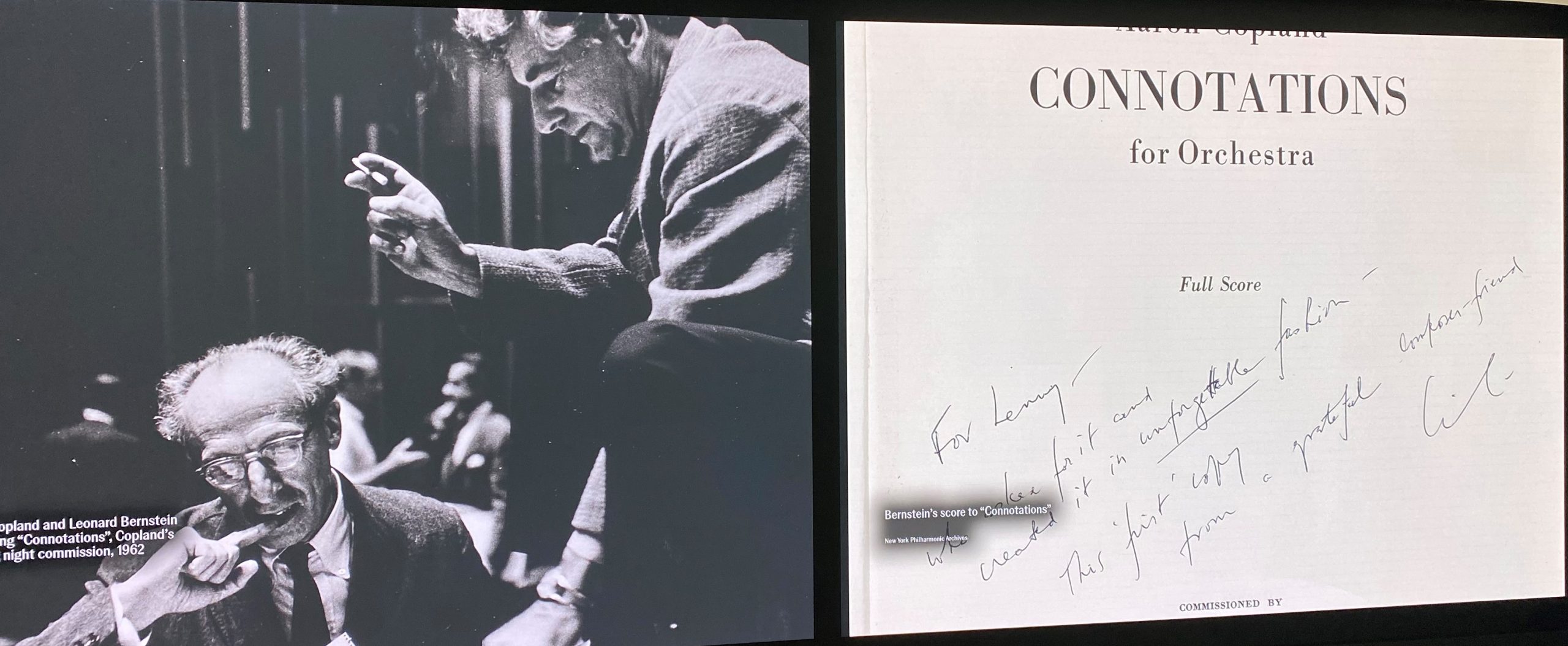
Aaron Copland and Leonard Bernstein were two titans of 20th Century Music. In many ways they were inseparable, a 50-year friendship where encouragement and patronage passed in both directions. More than this, like binary stars their careers orbited each other’s and the gravity of their personality and achievements made it impossible for one not to be influenced by the other.
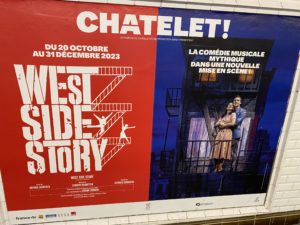 I recently had a very pleasant trip to Paris where my family and I went to see West Side Story (playing at the Théâtre du Châtelet until Dec 31st). It was brilliant and everything I hoped for. My 15-year-old daughter loved it which was a big win for me as there’s not much music that I listen to that she would willingly add to her playlist!
I recently had a very pleasant trip to Paris where my family and I went to see West Side Story (playing at the Théâtre du Châtelet until Dec 31st). It was brilliant and everything I hoped for. My 15-year-old daughter loved it which was a big win for me as there’s not much music that I listen to that she would willingly add to her playlist!
The whole experience took me way back to my own youth when I was also 15. At that time, I was introduced to this musical by my Mum when we watched the film The Making of West Side Story. This was a documentary about Leonard Bernstein (who amazingly, was for the first time) conducting West Side Story with opera stars Kiri Te Kanawa, Jose Carreras and Tatyana Troyanos. Only now do I realise just how influential this film was. I watched it again the other evening and was blown away for a second time. It was almost certainly one of the main ingredients in my personal primordial soup of musical influence! I now understand that this was akin to boarding a ship and setting sail with a one-way ticket to a lifelong love affair with Copland, Bernstein and modern American classical music!
My wife is amazed that I can recite whole verses of West Side Story. Officer Krupke made an enormous impression on me. Of the incredibly funny lyrics, one in particular became a bit of a catchphrase between me and my Mum:
I’m depraved on account I’m deprived!
West Side Story also played a part in me wooing my wife. We met on 21st December 2002. After a whirlwind Christmas romance, we spent the afternoon of New Year’s Eve watching the film version on her couch whilst chomping cheese and pickle sandwiches. Could be, who knows? Yep, it was! It simply had to be!
Bernstein influenced by Copland
In the weeks up to the Paris performance, I had been thinking about all the moments in West Side Story where you can hear the influence of Copland.
In a previous blog I mentioned the bit from Copland’s Piano Concerto that could easily be spliced into the dance at the gym scene. I have also started to hear the word Maria played in the brass! I really don’t think this is what made Bernstein choose that tune but I do concede it is there.
Other precursors for West Side Story that may have sown seeds are Danzon Cubano. Listen to the middle bit of the orchestral version from 4:30 in the version by Leonard Slatkin and the Detroit Symphony Orchestra. The swinging groove in that trombone is something that probably rubbed off on the youthful Bernstein especially as he often played the original piano duo version alongside Copland.
For a while now I have noted the similarity between the interlude Scherzo in West Side Story and the second half of Ranch House Party from the complete ballet version of Copland’s Rodeo. It’s not an exact match but there is a distinct feel (to me at least) that the original source material is cut from the very same cloth. Hence, I was amazed when I reread the section on Bernstein in Howard Pollack’s Copland biography, and it states that Bernstein actually contributed some music to Ranch House Party! I just wonder if Bernstein thought he was entitled to have this bit back for use in his own work? Considering that this is a bridging section that didn’t make it into the final cut of Four Dance Episodes from Rodeo, I feel sure that if it was by design, he would have decided that no one would probably notice!
Considering the above exchange of materials, it is a nice ironic twist that Copland came out with a wonderful line when he appeared on one of Bernstein’s Young People’s Concerts. He says:
Maestro Bernstein conducts the music as if he wrote it. But I just want to make one thing clear. He didn’t write it. I did!
Copland influenced by Bernstein? I think so!
Whilst all this amazing music and lyrics was on a constant ear worm loop in my brain, I started to wonder whether Copland was a fan of his understudy’s huge success? As yet, from looking through all the normal sources, I can’t find anything. Howard Pollack does mention that Copland liked On the Town but there is no mention of West Side Story at all, only that Copland was not a massive fan of his understudy’s music in general. However, rather prophetically, in 1949, Copland wrote:
It is possible that some form of stage music will prove to be Bernstein’s finest achievement
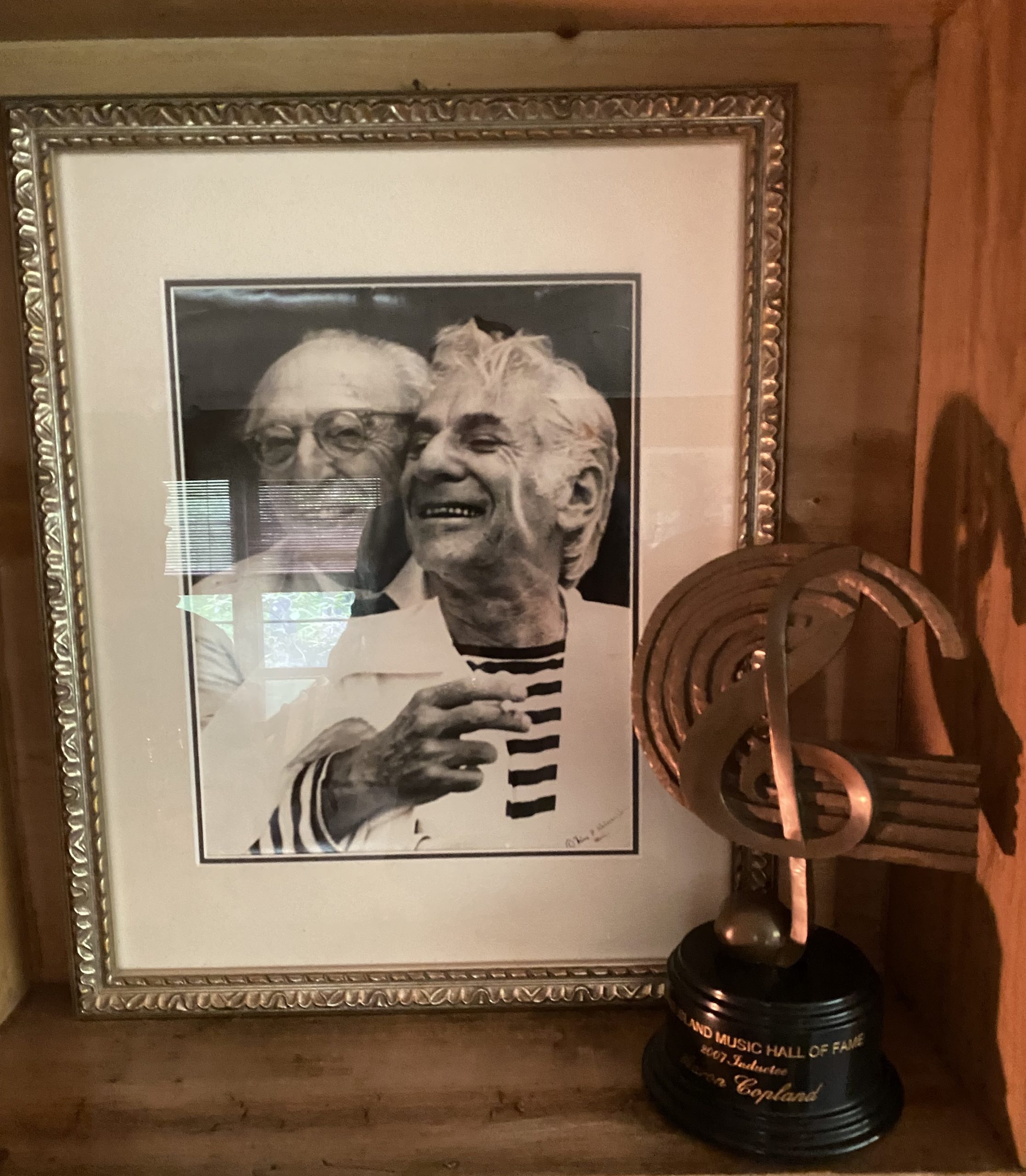
This picture of Aaron Copland and Leonard Bernstein sharing a joyful embrace, is on the bookshelf at Copland House.
Despite the lack of a smoking gun, I believe that West Side Story must have made a mark on Copland, consciously or unconsciously. OK, here’s my hypothesis.
In 1957 Copland was 57. The massive success he had experienced in the 1940’s was to a great extent behind him. Since, his last major populist successes (Clarinet Concerto and The Red Pony) Copland had largely focussed on more intimate works (the song cycles 12 Poems of Emily Dickinson and Old American Songs), works for TV (The Tender Land and The World of Nick Adams) and serial pieces (Piano Quartet and Piano Fantasy). Most of these works, with the exception of Old American Songs were at best minor successes. Most were either too esoteric and some like The Tender Land were out and out flops.
So, then along comes 1957 and his friends monumentally successful musical. What does Copland do next? Well, rather than being impervious to this type of music, a funny thing happens. Copland always someone with a self-confessed musical split personality, on one hand makes a brief return to his more populist idiom with some Latin inspired works and a ballet and on the other orchestrates an old work and composes new works that paint uncompromising pictures of New York City.
Copland’s output in the wake of West Side Story
Let’s look at these pieces a bit more closely:
Three Latin American Sketches – Originally written by Copland in 1959 as Two Mexican Pieces for two pianos. The waltz Paisaje has a lovely swaying lilt whilst Danza de Jalisco has a wonderful snap, crackle and pop and dance quality reminiscent of West Side Story. It’s not a huge conjectural stretch to imagine that Copland was inspired by the rhythms of Bernstein’s America and that this led him to retrace his steps and produce a Latin flavoured piece for the third time in his career.
Dance Panels – In 1959, the legendary choreographer of West Side Story, Jerome Robbins approached Copland to write a ballet that would become Dance Panels. Copland almost certainly must have hoped that working with such an illustrious figure at the top of his game would provide him with another big ballet hit? Unfortunately for Copland, Robbins went off the idea and produced Moves without musical accompaniment. Quite a slap in the face! Dance Panels has since been choregraphed but according to Pollack, never successfully and despite being like a Copland Greatest Hits compilation it is hardly known.
Piano Variations / Orchestral Variations – The Piano Variations is probably Copland’s most highly acclaimed and most performed modernist work. The young Bernstein was a huge fan of the work and claimed to play it in order to clear rooms at parties. Interesting then that in 1957 with Lenny’s star rising beyond the stratosphere that when Copland was approached by Louisville Symphony Orchestra for a new commission that he chose to orchestrate the Piano Variations? The result is unbelievable. The very black and white original is transformed into vibrant Cinemascope colour. This is Copland’s skyscraper music at its brilliant best.
Something Wild / Music for a Great City – Copland stopped composing for Hollywood back in 1949 after the Heiress and the unwelcome incident when his title music was cut to shreds by producer William Wyler. Another coincidence then that in the wake of Bernstein’s success with West Side Story on Broadway and the transfer to celluloid in 1961 that Copland should follow his younger compatriot and get involved in composing for a movie. Both films are set in New York and involve love stories. However, they couldn’t be more different in every way. West Side Story has a huge cast, features often hopeful songs, a fairytale romance and amazing colours. By contrast, Something Wild, involves a strange, violent, Stockholm syndrome relationship between two main characters in black and white. New York City is portrayed as bleak, claustrophobic and hot and sweaty – certainly no suggestion here that anyone “likes the Island Manhattan”! The film of West Side Story was premiered in October 1961 and was another huge success for Bernstein with the film scooping 10 Academy Awards. The storyline of Something Wild made it a hard sell in the first place but whoever made the decision to release the film on 23rd December must have been a Grinch! There’s absolutely zero Christmas cheer and it sunk without trace.
Connotations – By 1962, Copland was the “Dean of American Composers” and Bernstein had been at the helm of the New York Philharmonic for five years. The grand opening of the Philharmonic Hall at the Lincoln Center enabled Bernstein to commission Copland to write a piece, Connotations to which Copland returned the compliment by dedicating it to Bernstein (as well as members of the NY Phil). Again, Copland went for a hard-nosed, urban, industrial sound and at its premiere it went down like a lead balloon! It does have another nod to Copland’s former self and to Bernstein by including a reference to the Piano Variations. But in reality, Copland’s music was now as far removed from West Side Story and popular music tastes as he had been five years earlier with his equally hard to penetrate Piano Fantasy. Of course, the same could be said of Bernstein: not only trading Broadway for a position at the height of the artistic establishment but also in terms of his own compositions. He would have been prepping his intensely religious Symphony No 3: Kaddish at this time. This work was influenced by the assassination of John F Kennedy and has some similarities to Connotations especially in the loud and dissonant sections. Humphrey Burton, Bernstein’s biographer describes it as a work that
… jolt concert-going audiences out of their seats by the brutality of its assault on the received ideas of religion and man’s relationship with God…
(Another reason for Bernstein writing Kaddish was to provide a work for his wife Felicia Montealegre to perform. As you can imagine I’ll be writing a little more on that relationship in the coming weeks!)
Other uncanny incidences of following in each other’s footsteps
When you start looking, there are loads of little quirky incidences where Copland led, and Bernstein followed and vice versa. For instance.
At the same time Copland was writing his Violin sonata (1942) Bernstein was writing his Clarinet sonata. Strangely enough Copland’s Violin sonata was later transcribed for clarinet.
Two years after Copland composed Four Dance Episodes from Rodeo, Bernstein published Three Dance Episodes from On the Town.
Whilst Bernstein was working on his 1st Symphony Jeremiah, Copland was working on his Third.
Bernstein dedicated one of his Seven Anniversaries to Copland in 1944. A couple of year later Copland published a similar set of piano miniatures Four Piano Blues which he dedicated to four pianist friends.
In 1947 Copland set the text from the biblical book of Genesis in his choral work In the Beginning. So did Bernstein! In his Mass composed in 1971.
In 1949 both Copland and Bernstein were involved with producing clarinet works for jazz greats. Copland composed his Clarinet concerto for Benny Goodman whilst Bernstein was writing his Prelude, Fugue and Riffs for Woody Herman.
In 1975 Bernstein completed the ballet Dybbuk. Copland had previously based his 1928 piano trio Vitebsk on this story of Jewish life in Russia.
In the early 1940s it was highly likely that Aaron Copland and Leonard Bernstein were lovers. There was always enormous mutual esteem and Bernstein in particular went above and beyond in promoting his mentor’s work. He was involved in numerous activities that brought Copland works to the fore, particularly recording and conducting 22 of Copland’s orchestral works, staging the children’s opera The Second Hurricane, being the first pianist to record the Piano Sonata and arranging El Salon Mexico for solo piano. It was somehow fitting that two such stellar individuals with such closely entwined lives and careers died within 6 weeks of eachother in late 1990.
There can’t be many relationships that bore so much fruit. As Lenny himself said:
What a team! You write ‘em kid, and I’ll do ‘em!


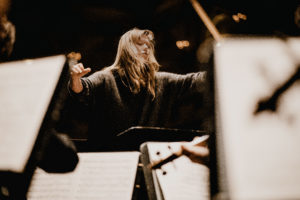
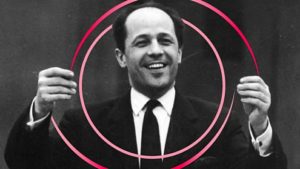
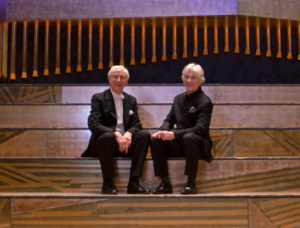





Leave a Comment